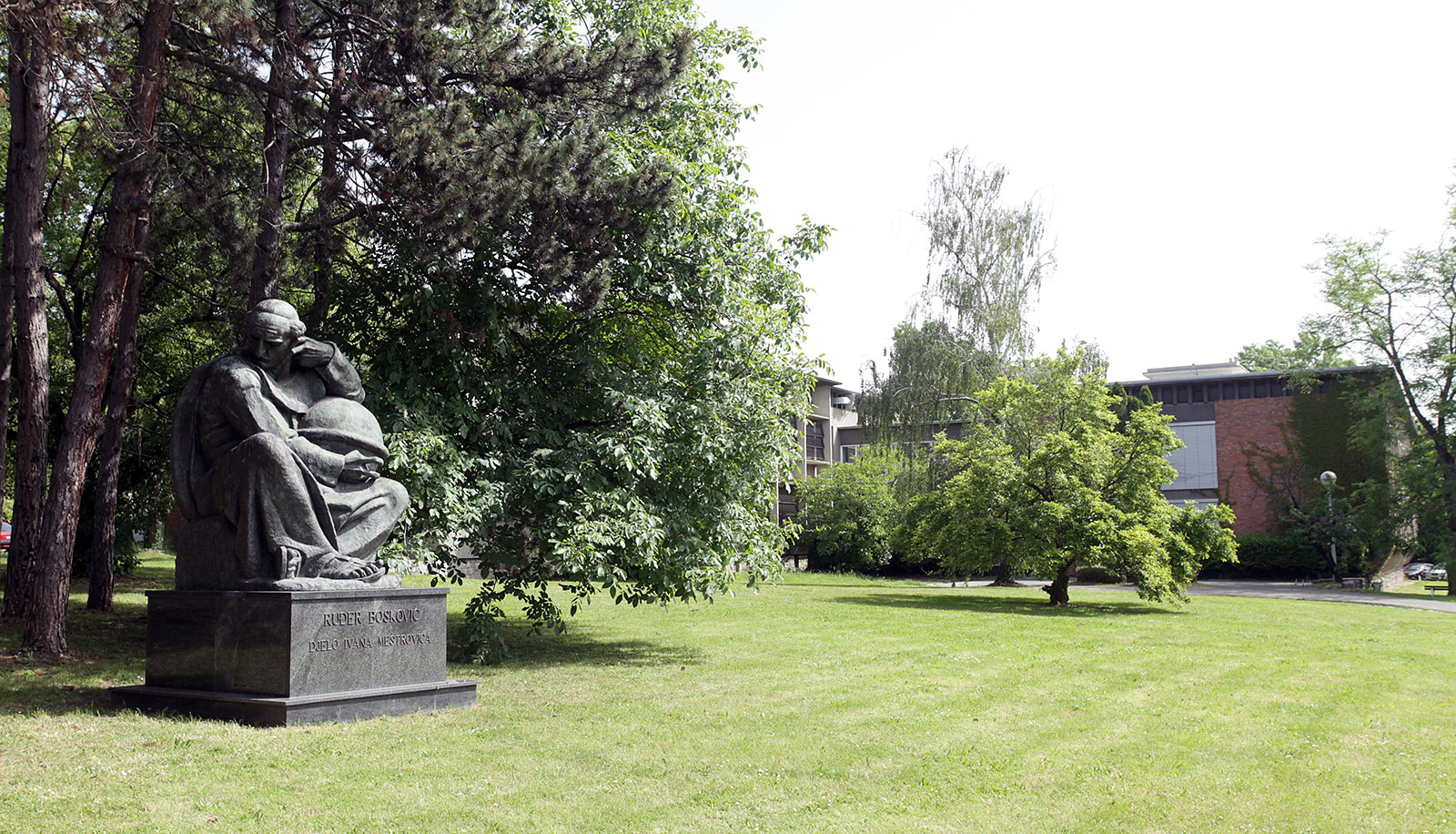About RBI
CDSE Foundation
Project Activities
Linked Activities
Expected Impact
Workplan
Management
News Archive
Popularization of Science
About RBI

The Ruđer Bošković Institute (RBI) is striving to become an internationally recognized research institution. RBI is Croatia’s leading scientific institute in the natural and biomedical sciences as well as marine and environmental research, owing to its size, scientific productivity, international reputation in research, number of international patents, and the quality of its scientific personnel and research facilities.
Today, RBI has over 550 scientists in more than 80 laboratories pursuing research in theoretical and experimental physics, physics and materials chemistry, electronics, physical chemistry, organic chemistry and biochemistry, molecular biology and medicine, the sea and the environment, informational and computer sciences, laser and nuclear research and development.
RBI possesses about 50% in value of all the Croatian research instrumentation, according to the Croatian Ministry of Science, Education and Sports (Ministry of Science). RBI is the most competitive Croatian institution by virtue of its participation in international research, leading the country in the number of IAEA, FP5-7, NATO, NSF, SNSF, SCOPES, DAAD and other international scientific projects.
In particular, to date RBI is involved in 33 FP7 projects, with one of these, “Enhancement of the Innovation Potential in SEE through new Molecular Solutions in Research and Development” (InnoMol), being the largest FP7 project in Croatia. Innomol is worth almost 5 million Euros, and is part of the highly competitive FP7 REGPOT programme – awarded for scientific excellence, capacity for managing projects and the effect of research results to the regional and socio-economic development.
According to the Croatian research and innovation infrastructure roadmap one of Croatia's strategic objectives, in line with the European 2020 Strategy, is to improve scientific excellence. For the purpose previous investments in the research infrastructure from EU funds, such as REGPOT projects under the Seventh Framework Programme (FP7) and the EU Pre-Accession Assistance funds (IPA), have been considered. In the context the success of RBI, and in particular of DEP scientists, in the FP7 REGPOT (RESEARCH POTENTIAL) grant is particularly relevant.
The first RBI FP7 REGPOT project: Clustering phenomena in nuclear physics: strengthening of the Zagreb – Catania - Birmingham partnership – CLUNA, 2007, was successfully implemented in cooperation with international partners from the UK and Italy. This was followed by another REGPOT project with, for Croatian circumstances, significant financial means for the development and experimental research of silicon and diamond particle detector systems Upgraded Facility for Development of Silicon and Diamond Particle Detector Systems – PARTICLE DETECTORS. These two projects of the Department of Experimental Physics are closely related to the PaRaDeSEC project and, in fact, can be considered as it ancestors.
RBI involvement in the Smart Specialisation Strategy
On a much more ambitious level, RBI is focused on to the European Structural and Investment Funds (ESIF). These funds became only recently available to Croatia, after it joined the European Union in 2013, and will be realized for the period 2014-2020 based on the “Croatian Strategy for the operational programme's contribution to the Union strategy for smart, sustainable and inclusive growth and to the achievement of economic, social and territorial cohesion“ – the Croatian Operational Programme.
RBI's flagship proposal to ESIF is through the 60 million Euro project “Open scientific infrastructural platforms for innovative applications in economy and society” (O-ZIP), designed accordingly to the current national Smart Specialization Strategy. O-ZIP is conceived around the specialized development of several scientific and technological platforms, in which RBI has a demonstrated comparative advantage. The targeted reinforcement, modernization and increased accessibility of these platforms will significantly enhance the impact of the RBI by enabling it to:
- reach new heights in the excellence of its scientific endeavours
- more effectively tackle the challenges faced by modern society, and
- make a lasting contribution to the development of a competitive industrial sector.
The excellence of the vision of the O-ZIP project, combined with RBI’s clear commitment to implement in parallel a comprehensive series of changes in the manner RBI is structured and operated in order to address the weaknesses and enhance the strengths, resulted in O-ZIP becoming an explicit part of the Croatian Operational Programme. O-ZIP, expected to start in 2016 or 2017, is in fact the only project based on fundamental science and technology that is recognized in this manner by the Croatian government, emphasizing O-ZIP’s wider national importance.
In addition to O-ZIP, RBI will during 2015 very likely form the around 10 million Euro worth “Cross-sector competence centre for advanced technologies” – applications of KET technologies. Such competence centres are an integral component of the Croatian Smart Specialization Strategy, and RBI through it has a direct link with all the main stakeholders in the Croatian industry.